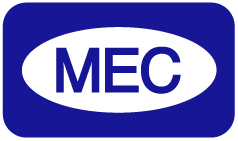Methylene Blue Dye Could Increase Colonoscopy Effectiveness

A blue tablet could help increase your gastroenterologist’s ability to detect polyps during a colonoscopy.
Blue Dye Increases Adenoma Detection Rate (ADR)
A recent study found that oral tablets with methylene blue dye could boost adenoma detection rate (ADR) as much as nine percent. ADR is the percentage of patients undergoing screening colonoscopies in whom a physician detects one or more adenomas, or precancerous polyps.
Alessandro Repici, M.D., of Humanities University Medical School in Milan, Italy, led the study. He and his research team analyzed over 1,200 colonoscopy patients at 20 facilities. Patients received either a placebo, a half-dose of delayed-release methylene blue dye tablet or a full dose. The patients who received the full dose of delayed-release methylene blue had nine percent more adenomas detected because the dye identified small, flat polyps that typically would have been missed.
Blue dye is commonly used during colonoscopy, but it is sprayed into the colon during the exam to highlight specific areas. The oral tablet used in the study is innovative because it is quick, easy to administer and has no known side effects.
ADR and Colon Cancer Prevention
Increasing physician ADR directly affects colon cancer prevention. For every percentage point increase in a physician’s ADR, a patient’s colon cancer risk is reduced by three percent.
Improving colon visualization during colonoscopy is the first and most essential step in boosting ADR since adenomas must be detected before they can be removed. Use of the delayed-release blue tablet still requires further testing but could become an integral part of the colonoscopy procedure.
Colon cancer is currently the third-leading cause of cancer death among men and women in the United States, but the disease is mostly preventable with routine colonoscopy. The American Cancer Society recommends that people who are at average risk for colon cancer begin screening at age 45. If colon cancer or colon polyps run in your family, however, you should be screened at a younger age.
Call Your Gastroenterologist
Talk to a gastroenterologist about when you should begin colon cancer screening. Only a colonoscopy allows your GI doctor to detect and remove precancerous polyps during the same procedure. It is so effective that you won’t have to repeat the procedure for a whole decade if you are at normal risk for colon cancer and have a clean bill of health.
